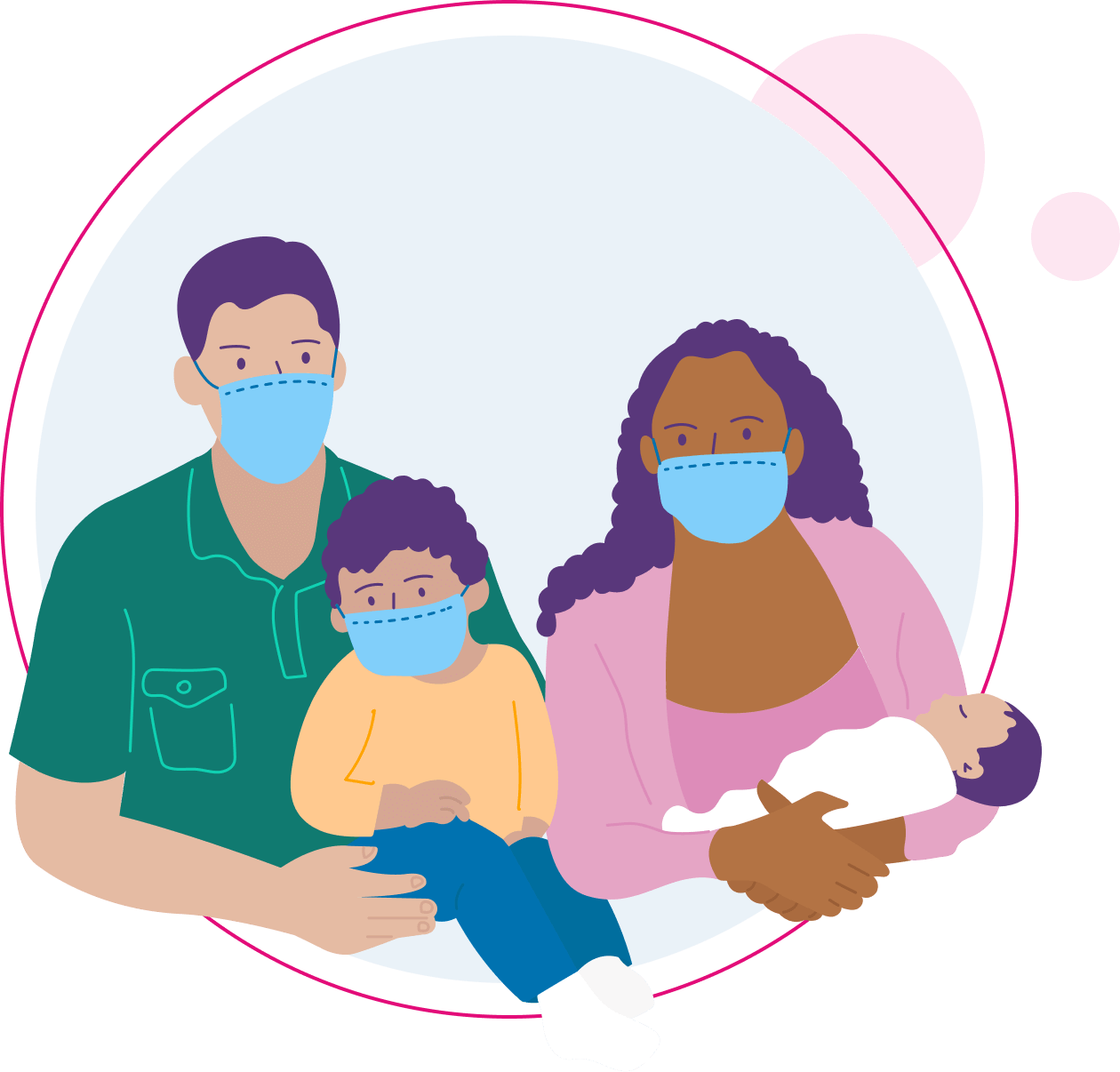7 Signs it’s time to visit urgent care for a cough
A cough is something most of us experience from time to time, and usually, it’s nothing to worry about. But...

Medically reviewed by
Dr. Rob Rohatsch, MD
Updated on Feb 23, 2026

COVID-19 has been linked to a wide spectrum of symptoms, from moderate to severe, including the following:
With both the Delta and Omicron variants spreading, the CDC currently recommends that both vaccinated and unvaccinated people wear a mask indoors in public, particularly if you are in an area of higher risk of transmission.
In the United States, wearing a mask over your nose and mouth is mandatory on planes, buses, trains, and other kinds of public transportation.
Call your medical provider or 911 if you experience severe COVID symptoms including, but not inclusive of:
Tell the operator that you have or may have COVID-19.
According to the CDC, studies have shown that COVID-19 vaccines are safe to get and highly effective at preventing you from getting COVID-19. Even if you do get COVID-19, the vaccine prevents you from getting seriously ill. The more people that get vaccinated, the faster we can get back to normal life.
Rigorous clinical trials must show that vaccines are safe and effective before they're authorized for public use. Millions of people have received COVID-19 vaccines, which have undergone the most intensive safety monitoring in US history.
All approved vaccines are proven to be highly effective at preventing COVID-19. Based on what we know so far, experts believe that all the approved vaccines will nearly 100% prevent serious illness and death. They may also help protect family, friends, and those around you.
COVID-19 vaccines will be free for all Americans under the CARES act. The US government has already ordered and paid for hundreds of millions of COVID-19 vaccine doses using US tax dollars to ensure that everyone who wants one can get one.
The CDC now recommends everyone 16 and older receive a COVID-19 vaccine booster shot. If you are at least 18 years of age, you can choose any of the 3 FDA approved vaccines as your booster, however if you are 16-17 years old, Pfizer-BioNTech COVID-19 vaccine is the only approved booster shot.
The simplest approach to avoid getting COVID-19 is to avoid coming into contact with this virus, and getting vaccinated. Here are the main things the CDC is continuing to recommend:
The COVID vaccine has been proven to be safe and effective, and is readily available for people 5 years of age and older. Find a vaccine site near you
Use soap and warm water, washing for at least 20 seconds, especially after using the bathroom, before eating, and after blowing your nose, coughing, or sneezing.
Avoid close contact with anyone who is sick or symptomatic. Keep at least six feet between you and anyone who might be coughing or sneezing.
Both vaccinated and unvaccinated people should wear a mask indoors in public, particularly if you are in an area with a higher risk of transmission.

Medically reviewed by
Dr. Rob Rohatsch, MD
Updated on Feb 23, 2026
Solv has strict sourcing guidelines and relies on peer-reviewed studies, academic research institutions, and medical associations. We avoid using tertiary references.